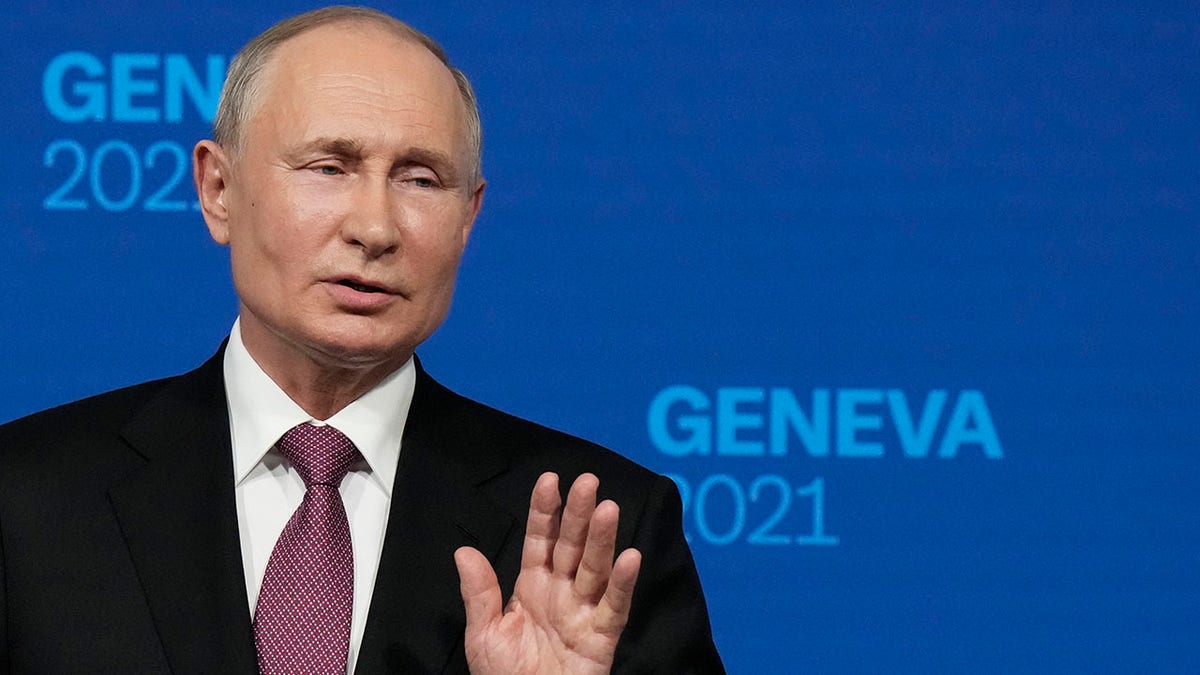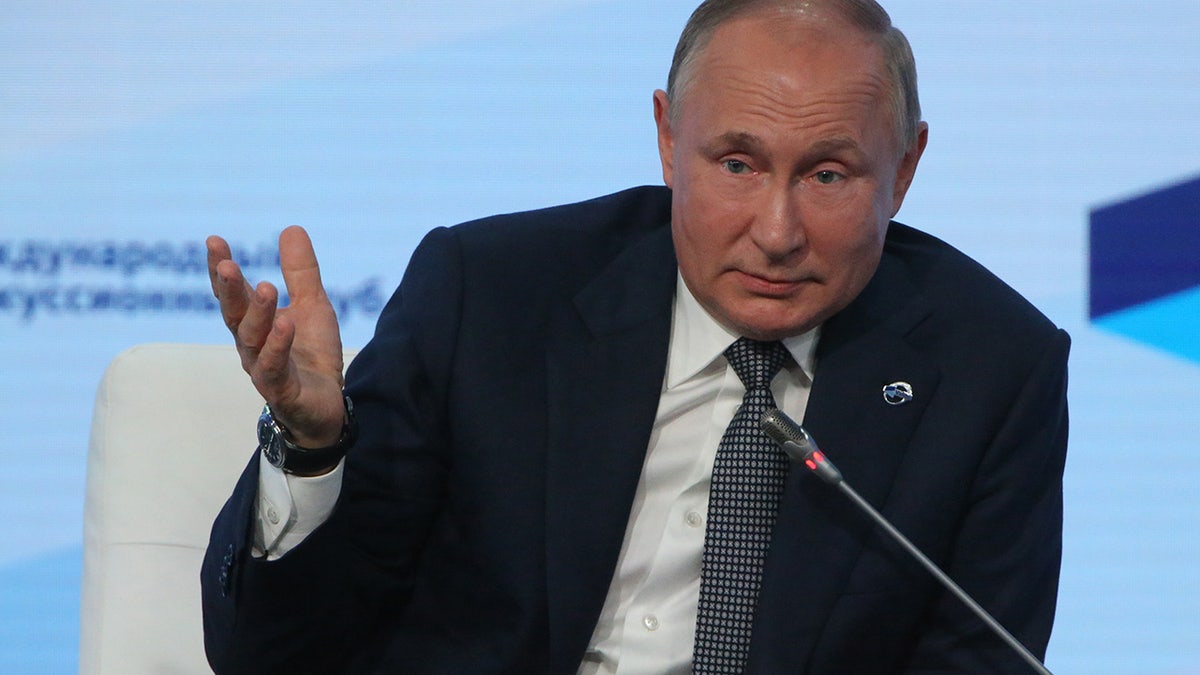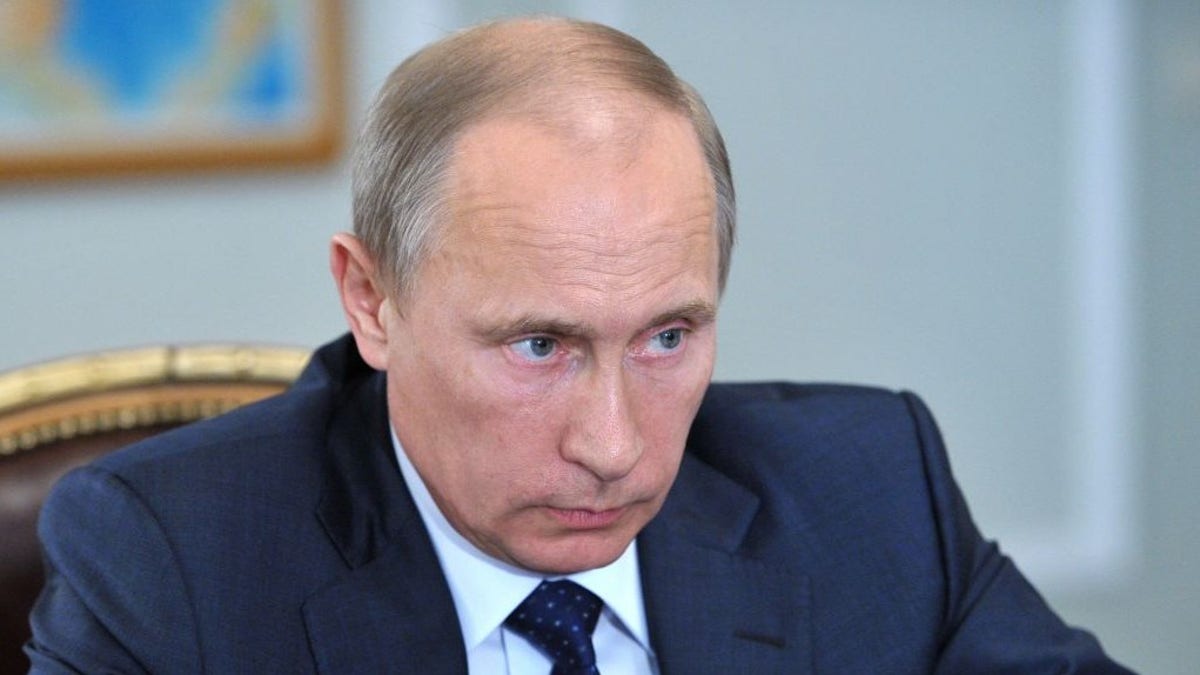Foreign policy experts discuss Putin’s motives in Ukraine
Fox News correspondent Amy Kellogg talks to foreign policy experts about the ongoing crisis in Ukraine.
MOSCOW – If I had a ruble for every time someone asks what Russian President Vladimir Putin is thinking, planning vis-a-vis-Ukraine, I would be a very rich person.
According to Andrei Soldatov, a security services expert, not only don't we know. Many of the people sent out to negotiate on behalf of Putin are in the dark too.
"They absolutely they have no idea what is going on, which is a very ominous sign in itself," Soldatov, in exile for the time being, told Fox News. "It's very clear that the Foreign Ministry doesn't know what is going on. It's all up to one person- though it may also be up to the military, which is getting more and more and more influential and powerful. And the interesting thing is that in Russian society, the military now plays such a huge role, which is quite unprecedented."
Soldatov believes the military's rise in prominence is actually closely linked to Russia's last Ukrainian military adventure, the occupation of Crimea in 2014.

Russian President Vladimir Putin speaking during a news conference after his meeting with President Biden in Geneva, Switzerland, in 2021. (AP Photo/Alexander Zemlianichenko, Pool, File)
"Crimea's annexation went really smoothly thanks to the military, not thanks to the FSB [Russia's security services]. And Putin has been obsessed with the threat of 'color revolutions,' as you know, from the beginning [ of the century]. And the problem was that the FSB, his main security agency, failed to provide the proper response to threats of 'color revolutions.'"
"Color revolutions" are what the Kremlin calls those uprisings that have happened in several former Soviet Republics to topple often pro-Russian governments. Soldatov points to the military response to Ukraine's 2014 revolution, which he says was to teach the victors a lesson by taking away some of their territory — namely the prized Crimean Peninsula. It could serve also as a warning to others. Soldatov adds that on the topic of Crimea — the military jumped in to give some contracts to Russian industrialists who came to suffer after sanctions were slapped on the country for the annexation of Ukrainian territory.
BIDEN 'GREEN LIGHT' TO PUTIN ON UKRAINE WILL HAVE 'RIPPLE EFFECT' THROUGHOUT THE WORLD, CRITIC SAYS
Moscow-based military analyst Pavel Felgenhauer blames military intelligence for fueling the fires that have led to the present tense stand-off with the U.S. and NATO over Ukraine, and that it is Putin's paranoia that America is out to get him that is at the root of this crisis. Felgenhauer says the military stokes these fears in order to keep funding from the Russian government flowing.
Felgenhauer says fear is so intense that he cites a recent report Russia is modernizing its perimeter or "dead hand" system designed to "counter a (potential) American first decapitating strike." In which case he says a missile will "fly over Russia sending signals and directing silos to launch missiles at the United States" in the event Russia's military and political leadership are dead. It's an automated computerized system to run a nuclear war. "This is dead serious," Felganhauer says.
In the immediate term, Felgenhauer claims he worries about accidents happening, with so many troops and hardware moving around the continent.

Putin in Sochi, Russia, in October 2021. ( Mikhail Svetlov/Getty Images, File)
"Because we're in a situation where we are kind of facing off, and that means we're going to have encounters; there could be encounters in the Black Sea that can be encounters in the air."
Felgenhauer thinks the crisis is born out of Putin's security concerns, and frankly, most people I speak to in Moscow agree, even if logically many believe the president must know that NATO would not attack Russia. Andrei Soldatov doesn't think the recent Russian troop build-up is actually about a land grab in Ukraine.
"I don't think it's about territory, to be honest. It's very costly. What they also understand and that I got from every FSB officer I talked to is that we're still taught in schools, especially in the Academy of the FSB, how difficult it was for Stalin's security services after the war to pacify Ukraine. They lost so many people killed by guerillas."
Felganhauer thinks regardless of motives or outcome, the path Russia has embarked on is harmful. "I think there's nothing but grief," Felgenhaeur said. "It's a very dangerous situation, even in the best possible scenario, there would be nothing good there for Russia at all. As a nation, because even the good scenario is that we won't go to war and the situation will continue to be kind of a tense Cold War. But the Cold War for Russia is not a very good idea at all. The Russian economy has been stagnating for the last 10 years."
He said the second decade of the 21st century has been effectively lost in terms of economy and development.

Putin's fears about the U.S. are at the root of the crisis, one analyst says. (The Associated Press, File)
If you listen to Putin, this apparent urge to intervene in Ukraine is about protecting Russian-speakers in an increasingly hostile Ukraine and restoring the brotherly bonds between two similar peoples who through history often lived as one. People like Soldatov will tell you the Kremlin's position and its effects on greater Russian society have created a gulf so great it may never more be bridged.
CLICK HERE TO GET THE FOX NEWS APP
"I'm just I'm really depressed because the situation is strikingly different from what we saw in 2014, from the point of view of the Russian society back in 2014. Russian intelligentsia, Russian liberals, went out on the streets. All of us went to anti-war marches to tell the Ukrainians that they are, we are all on the same side. We do not want to have war," he says.
"The problem now is that these days the Russian intelligentsia is still against the war, but nobody talks about Ukraine. Because our societies and our countries have become so distant. Very few people in Moscow understand these days what is going on in Ukraine. We have this new alienation between our countries. Ukrainians do not want to talk to the Russians." He continues, "It is just depressing, because almost every Russian has some family in Ukraine, including me. "








































